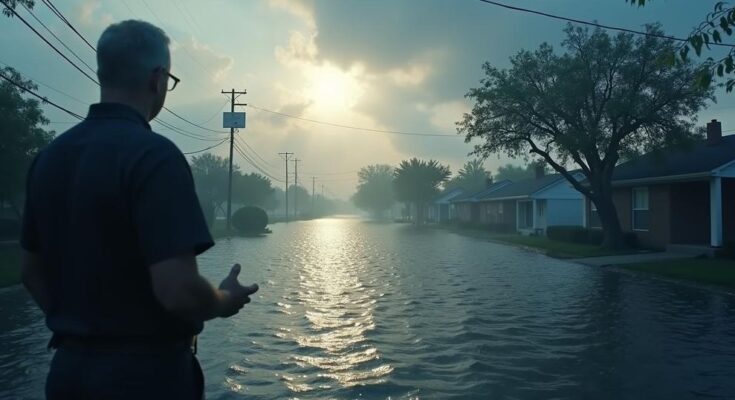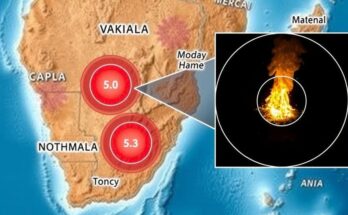FEMA Administrator Deanne Criswell linked the devastating impact of Hurricane Helene, which has caused at least 88 deaths and extensive flooding from Florida to the Appalachian Mountains, to climate change. She noted the changing nature of hurricane damage, emphasizing increased water damage due to warmer ocean temperatures. Efforts are underway to address the significant infrastructure damage and assist affected communities.
The head of the Federal Emergency Management Agency (FEMA), Deanne Criswell, attributed the destruction caused by Hurricane Helene to climate change, referencing the extensive flooding that affected areas from Florida to the Appalachian Mountains. The storm has resulted in a rising death toll, which has reached a tragic total of at least 88 individuals. In an interview on CBS’ “Face the Nation,” Administrator Criswell explained that the storm’s development was prolonged but escalated rapidly due to warm Gulf waters, which she indicated were contributing factors to the increased frequency and intensity of such storms. She noted, “this storm took a while to develop, but once it did, it developed and intensified very rapidly,” pointing to warmer ocean temperatures as responsible for enhanced storm surge and rainfall. Criswell provided further insight into the nature of the damage wrought by the hurricane, indicating that the trend has shifted due to climate factors. She stated, “In the past, when we would look at damage from hurricanes, it was primarily wind damage, with some water damage. But now we are seeing so much more water damage. And I think that is a result of the warm waters, which is a result of climate change.” This perspective reflects an alarming shift in the impact of hurricanes on infrastructure and communities. The FEMA Administrator highlighted the significant repercussions across several states, including Florida, Georgia, South Carolina, North Carolina, and Tennessee, where vital infrastructure such as water systems, communication lines, and roads has suffered extensive damage. Notably, North Carolina has experienced “historic flooding,” particularly in its western regions, leading to deadly landslides and overwhelming emergency response efforts. Sheriff Quentin Miller of Buncombe County, North Carolina, lamented the loss of 30 lives linked to Hurricane Helene, while Governor Roy Cooper anticipated the discovery of more fatalities as rescue teams work through obstructed areas. He has advised residents to refrain from traveling in hazardous regions to ensure the safety and efficiency of emergency operations.
Hurricane Helene has profoundly impacted the southeastern United States, particularly notable for its unprecedented flooding and destruction in multiple states. The storm’s effects have drawn attention to the relationship between increasing hurricane intensity and climate change, with FEMA and state officials connecting this disaster to long-term environmental changes. This emphasizes the increasing complexity of disaster preparedness and response in the face of evolving climate patterns that lead to more severe weather events.
In conclusion, Hurricane Helene has underscored the critical need to address the ramifications of climate change on weather patterns and disaster response. FEMA Administrator Deanne Criswell’s statements point to a significant shift in how hurricanes inflict damage, particularly through flooding. With mounting death tolls and widespread destruction, this storm serves as a chilling reminder of the increased risks posed by climate change-induced phenomena.
Original Source: www.ibtimes.com




